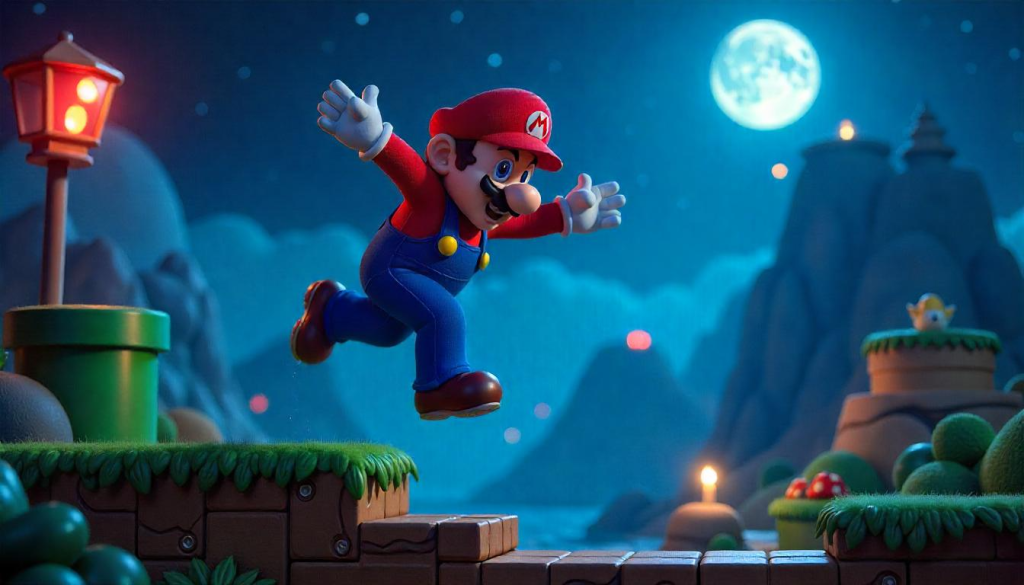Gary Bowser is not a name you’d expect to be at the center of a global video game piracy battle. He’s not a famous game developer, a tech CEO, or a household name in the gaming world. Yet in recent years, his story has become one of the most talked about in gaming circles. But who is Gary Bowser, and why has he drawn so much attention from Nintendo and the gaming community?

Who is Gary Bowser?
Gary Bowser is a Canadian citizen who became widely known for his role in a hacking group called Team Xecuter. This group was involved in developing and selling tools that allowed gamers to bypass the security systems of consoles like the Nintendo Switch. Essentially, these tools enabled people to download and play pirated games — which is illegal in most countries.
Bowser was not the head of the operation, but he was a public face. He helped promote and market these devices and was involved in distributing the illegal software. According to reports, Bowser made only a small portion of the profits compared to others involved, but he still became the focus of a major legal case.
The Rise of Team Xecuter
To understand Bowser’s story, it helps to know a bit about Team Xecuter. This group had been active in the modding and hacking community for years, working on tools for many popular gaming consoles. While some people see console modding as a way to customize and improve their gaming experience, it often crosses legal lines when it enables piracy.
Team Xecuter developed a device called SX Pro, which could unlock the Nintendo Switch and allow it to run pirated games. While this may have seemed like a technical breakthrough to some, to Nintendo, it was a direct threat to their business.
Nintendo Strikes Back
In 2020, Nintendo filed a lawsuit against Bowser and others involved with Team Xecuter. The lawsuit was serious. Nintendo accused the group of causing more than $65 million in damages through their piracy-enabling tools.
Bowser was arrested in the Dominican Republic and later extradited to the United States. He was charged with multiple crimes, including conspiracy to commit wire fraud and trafficking in circumvention devices. The case quickly gained media attention, especially because of his last name — “Bowser,” which is the name of one of Nintendo’s most iconic villains in the Mario series.
The Court Case and Sentencing
In February 2022, Bowser was sentenced to 40 months in prison. But even before that, he agreed to pay Nintendo $4.5 million in restitution. Later, he was ordered to pay an additional $10 million as part of a civil settlement.
What made the case even more shocking was how Nintendo seemed determined to make an example out of Bowser. They made it clear that they were not just targeting major hackers or developers, but anyone involved in the piracy ecosystem — even those with small roles like marketing or distribution.
Life After Prison
Gary Bowser was released from prison in 2023, but his financial burden is far from over. With over $10 million owed to Nintendo, he is likely to spend the rest of his life trying to repay a debt that’s nearly impossible to clear. In interviews after his release, Bowser admitted that he was wrong and expressed regret for his involvement. He also shared that he had made only around $300,000 from the project over several years — a small amount compared to the fines and jail time he received.
Was the Punishment Too Harsh?
This is a question that many people in the gaming and tech community have asked. Was Nintendo right to come down so hard on Bowser? On one hand, piracy does cause real financial harm to game developers and publishers. On the other hand, many believe that the punishment was too severe, especially for someone who wasn’t the mastermind behind the operation.
Some argue that Bowser was used as a scapegoat or an example to scare others away from hacking or piracy-related activities. Others feel that he knew the risks and chose to continue anyway, so he should be held responsible for the consequences.
What This Means for the Gaming World
The Gary Bowser case sends a strong message: video game piracy is still taken very seriously, and companies like Nintendo are willing to go to great lengths to protect their intellectual property. This case may discourage some people from engaging in modding or hacking, even for personal use.
It also raises questions about the balance between corporate rights and individual freedoms. Many gamers feel they should be allowed to modify hardware they own. But when those modifications allow piracy, it becomes a legal issue.
A Cautionary Tale
Gary Bowser’s story is not just about hacking or piracy. It’s also about choices, consequences, and how even a small role in a big operation can change your life forever. His case serves as a warning to others in the tech world — whether you’re a developer, a marketer, or just someone interested in modding — that what may seem like a harmless side project can quickly turn into a legal nightmare.
Conclusion
Gary Bowser never planned to become the face of video game piracy. Yet through a mix of bad decisions and unfortunate timing, that’s exactly what happened. His story is a reminder of how powerful companies like Nintendo will go to great lengths to protect their creations, and how important it is to understand the legal lines that shouldn’t be crossed.
Whether you see him as a criminal, a scapegoat, or just someone who made a big mistake, one thing is clear: the name Bowser will now mean more than just Mario’s enemy — it will also stand as one of the most infamous piracy cases in gaming history.